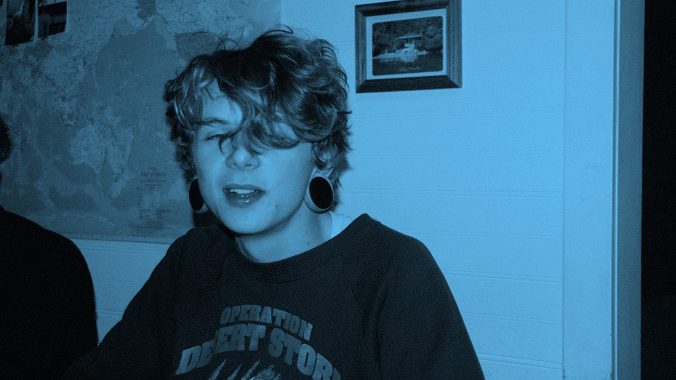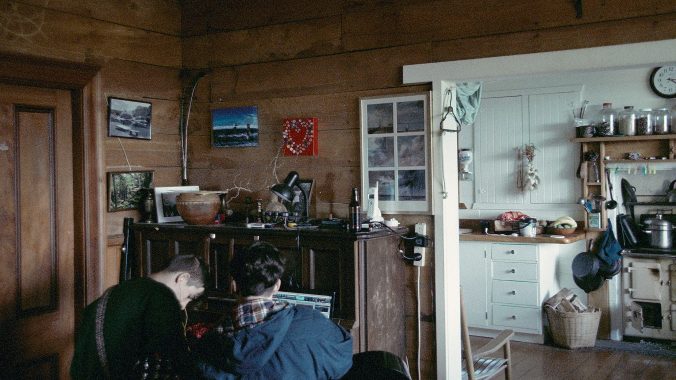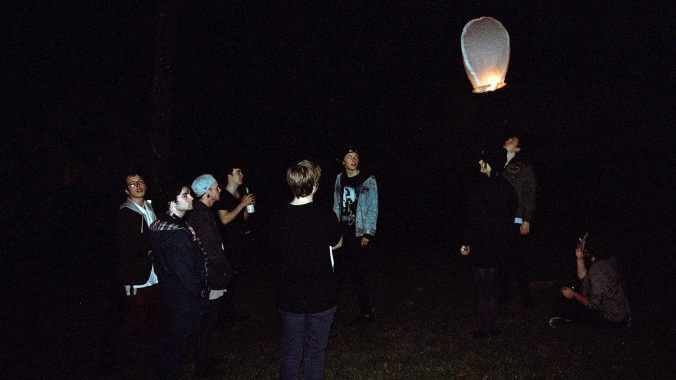salvia palth’s melanchole at 10: How Tumblr’s Bedroom Pop Titan Still Endures
A conversation with Daniel Johann Lines, the once-unassuming teenager who uploaded an album to Bandcamp that would become a defining project for moody, terminally online adolescents
Photos courtesy of Jono Verrall
To call Tumblr a relic of the past will resonate with many, even if it’s not quite true. Tumblr is a relic of my past and the pasts of many of my friends; it served as a testing ground for media-hungry youth trying to find something “different.” For many of us, that’s what we found. But, looking back, the microblogging platform also helped cement the zeitgeist with every Marvel GIF montage. Changes in ownership, content moderation and platform experience inspired what some would call a “mass exodus” to Twitter. While today I’m absent from the platform, from what I can tell, Tumblr is still vibrantand maybe—with Twitter worsening under new leadership—the platform will see some renewed engagement. With more options for sharing media, less drama associated with its ownership, and no need to send invite codes, Tumblr could be the preferable platform for sharing new art once again.
For Daniel Johann Lines, the New Zealand-based creator behind the quietly famous project salvia palth, the Tumblr of ten years ago was an ideal platform for sharing new music. “People listened to something new in good faith,” he says. Unlike other social platforms, Tumblr let users like Lines upload high-quality audio files directly onto the platform. Casual distribution extended beyond just sharing a Bandcamp or Spotify link. As crucial as that was for melanchole—presently his only release as salvia palth—it was that ease, plus a general receptiveness across Lines’ corner of the blogging platform, that let the album be ensconced in listeners’ heads.
Ten years later, melanchole still holds up and is, arguably, more popular than ever. “i was all over her” alone boasts nearly a quarter of a billion streams on Spotify. What made Lines’ mumbled utterances and fuzzy arrangements appealing then has only grown with young audiences—who Lines believes “are looking for something totally different from big indie, let alone the radio”—since.

melanchole is not a typical coming-of-age record. Recorded during the winter of 2012, when Lines was 15 years old, the homespun album darts between gloomy dream pop, gentle ambient, abrasive noise and immersive shoegaze with outstanding comfort. Contemplative, genre-expansive albums of this era that found dedicated audiences online are hallmarks of a stylistic micro-movement: “lo-fi bedroom pop,” a phrase often uttered today with reticence or derision. Its supposed ease of creation, plus the dramatic overuse of the term for any DIY project, watered it down. The album’s big hit, the hushed “i was all over her,” is the closest it flies to being an alt-pop project. “i don’t want to ask your father or anything” oscillates between gentle bedroom rock and anxiety-inducing noise. The title track sounds like a Grouper outtake. “madison,” a composition borrowed from fellow New Zealand musician Madison.v’s song “Mary Mandull,” is even more ethereal.
Lines touches on familiar themes like adolescent awkwardness and existential anxiety with the kind of curiosity and intensity someone exhibits when they’re presently in the throes of them. “When I was making melanchole, my life was very hard,” Lines explains. “I grew up in deep poverty in rural New Zealand. Plus, between 10 and 22, I had these periods every six months where I’d have ten to twenty epileptic fits,” Lines says. “My family lived in a shed. I come from a very small school in Collingwood and everyone knew everyone; the people were awful.” By the time he wrote melanchole, his class consisted of five people. It was a thoroughly lonely adolescence, one with a handful of close acquaintances and a looming adversity that comes from poverty and isolation.
His late father helped nurture his musical curiosity; by the time he’d reached musical spaces on the internet like Bandcamp and Tumblr, he was primed to listen and create with an open mind. Many of his musical idols and other cult favorites recorded directly to vinyl or tape using found equipment, which inspired his frugal production practices.
For melanchole, he used a panoply of found and borrowed instruments: an electrified acoustic Fender he bought with money earned working at a local festival, a Casio MT-45 salvaged from the dump, a borrowed bass with three strings, a borrowed drum kit, melodica and, notably, no pedals. Lines recorded his guitar directly into the audio interface. The rough-hewn recording feels like sandpaper, but given the numbness of middle-of-the-road studio recordings, the coarseness proved a welcomed departure. He burned melanchole onto CDs using resources at school and distributed copies among friends. On May 6th, 2013, he uploaded the album to Bandcamp.

Lines doesn’t pay that close of attention to the specifics of his own streaming metrics, but in the years since melanchole’s release he’s maintained awareness of how he and the album are talked about. is well aware that the album is a cult favorite. And, ten years later, he can’t pretend that he hasn’t moved on from melanchole, both sonically and subjectively: “It’s very awkward to have this kind of music out there, everywhere. I maintain as little relationship with the songs’ content as possible, but I try to be a steward of it.” When Lines released melanchole as a teenager, it resonated with audiences his own age. In 2023, the bulk of its listeners are very young, something Lines understands and takes seriously.
-

-

-

-

-

-

-

-

-

-

-

-

-

-

-

-

-

-

-

-

-

-

-

-

-

-

-

-

-

-

-

-

-

-

-

-

-

-

-

-










































